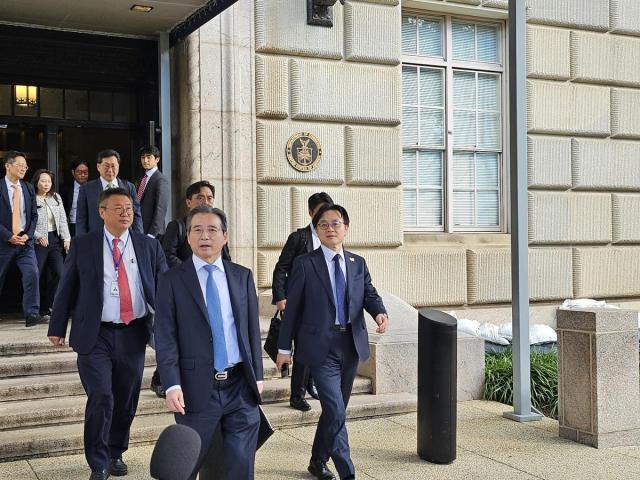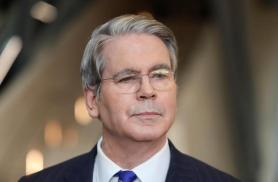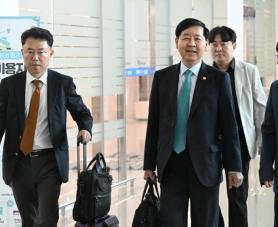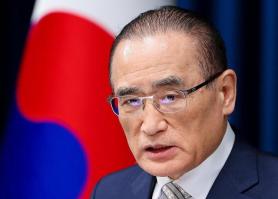
SEOUL, October 23 (AJP) - “It ain’t over till it’s over,” senior Seoul officials said as they wrapped up last-mile marathon talks in Washington over a trade agreement tied to South Korea’s $350 billion investment pledge in exchange for relief from a 25 percent U.S. import levy.
After a two-hour meeting with U.S. Commerce Secretary Howard Lutnick, Kim Yong-beom, policy chief to President Lee Jae-myung, told reporters, “We discussed many remaining issues and made some progress. There are only a couple of issues left, but further discussion is needed.”
He declined to call the talks the “final stage,” adding, “Negotiations aren’t over until they’re over,” hinting at lingering thorny issues.
Kim’s cautious tone contrasted with the optimism he expressed earlier this week when he arrived in the U.S. with Industry Minister Kim Jung-kwan, who returned to Washington in less than a week for the same purpose.
Asked whether another meeting with Lutnick was planned, Kim said, “It’s difficult to meet again in person. If further discussion is needed, it might be done virtually.”
He maintained hope that the two sides could reach an agreement before U.S. President Donald Trump visits Korea for the Asia-Pacific Economic Cooperation (APEC) summit in Gyeongju on Oct. 31. “APEC is an important occasion for us,” he added.
Seoul and Washington agreed last July on the headline figure of a $350 billion investment commitment, under which Korea would channel that amount into U.S. projects in exchange for a reduction of tariffs on Korean automobile imports — to 15 percent from 20 percent — and relief on other sector-specific duties.
But the deal has stalled as Washington demands an up-front cash payment covering most of the pledged amount — a sum equivalent to nearly 80 percent of Korea’s foreign-exchange reserves and about 16 percent of its nominal GDP in 2024.
Seoul is pushing for a ten-year installment plan, committing $20 billion per year with a 5 percent cash component, citing potential shocks to the economy and exchange rate. Washington, however, is pressing for a lump-sum structure similar to Japan’s arrangement, which largely followed U.S. conditions met during Trump's four-year term.
* This article, published by Aju Business Daily, was translated by AI and edited by AJP.
Copyright ⓒ Aju Press All rights reserved.




